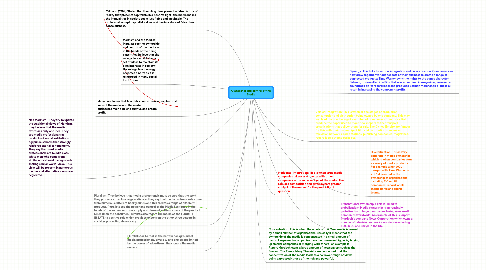Ownership and control of the Media
doodles tankにより

1. Marxism and the Media: Marxists see the ownership and control of the media as in the hands of the ruling class- they believe that the ruling class establishes a set of ideas to maintain its own interests in society- the ruling class ideology becomes a norm as it is reinforced in many social institutions.
2. Miliband (1969) Stated that the ruling class present a false picture of reality that presents capitalism in a positive light- the media makes the inequalities in society seem justifiable and inevitable. The proletariat accept capitalist values and live in a state of false class consciousness.
3. Many people see that Marxists show an over-conspiratorial view of the media and the media businesses main aim is to survive and create profit.
4. Neo Marxism- They try to update the traditional views of Marxism, they believe that the media expresses only one idea. They see media professionals as products of social institutions e.g public schools that strongly reinforce capitalist hegemony. They say that most media professionals are middle class, white men who come from similar educational backgrounds sharing similar world-view. This view will be present in numerous medias and alternative views are neglected.
5. Pluralism: They believe that media professionals must be sure that the work they produce attracts a large audience- they say that media professionals come from numerous different backgrounds and this creates a range of different products. Pluralists see the power and control of the Media lies firmly in the hands of the audience- it is a supply and demand as the success of the product relies upon the consumer. Pluralists also regard the media as the FOURTH ESTATE- a positive role which provides checks on the other three powers in society- protecting democracy.
6. Pluralists fail to realise the narrow background of media professionals, diversity and choice are limited by the power of advertisers, they ignore the media owners.
7. Concentration: This is when the whole of the Mass media is owned by a small number of organisations. Basically it means that the ownership of the media is concentrated in a small amount of hands. Large media companies have become even bigger by buying up smaller companies or merging with others- an example is Rupert Murdoch owns a large amount of newspapers such as the Sun and The Times. Many Theorists are concerned that the concentration of the media leads to a narrower range of views being expressed- those of the rich and powerful.
8. Vertical integration: This is when all the stages of production, consumption and distribution being owned by one company. This may involved the purchasing of a number of companies- from those that produce the paper used to make newspapers to the transport organisations that deliver them for sale. The Disney Empire are famous for this with their ownership of film and distribution companies, television networks, radio stations, publishing companies, magazines, record labels theme parks etc.
9. Horizontal integration: This is when large media companies takeover or merge with other companies in the same section of the media. This reduces competition and gives owners greater control of the market for the production in question.
10. Transnational ownership : This is linked to globalisation- Media ownership is increasingly globalised with larger companies taking over small companies worldwide. An example of this is Rupert Murdoch's company News Corporation which owns a number of television networks worldwide including FOX in US and BskyB in the UK.
11. Diversification: This is very apparent in media ownership which is when companies own a variety of media products. For example when AOL merged with Time Warner in 2001 it resulted in the ownership of organisations including TV and film companies, record labels, theme parks and sports teams.
12. Synergy: This links to vertical integration and diversification. Companies can now draw together various aspects of their business to create a range of connected products; Time Warner owns the rights to the comic character Batman, this resulted in a Film that was advertised in magazines, released a soundtrack on its record label and produced Batman merchandise- these all result in increasing the company's profits.


